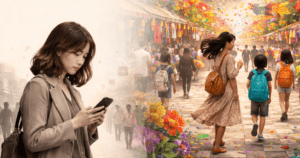In a world increasingly overwhelmed by tragedy, it is easy to feel that empathy has its limits. But the truth is, empathy is not finite; it is a boundless human trait, capable of stretching to encompass multiple crises, diverse experiences, and seemingly endless suffering. Recent events have once again reminded us of the pressing need for collective compassion — not selective empathy.
As global attention shifts between wars, natural disasters, and humanitarian crises, we must confront a troubling tendency: the competition for sympathy. The narrative often emerges that focusing on one plight diminishes the significance of another. But this is a false dichotomy. Empathy is not a zero-sum game. The human heart has the capacity to grieve for lives lost in Ukraine while simultaneously mourning the devastation in Gaza or the suffering in Sudan.
Social media and partisan narratives exacerbate this division, creating a hierarchy of suffering. The digital age offers us unparalleled access to information, but it also comes with a darker side: the temptation to compare pain. Who suffers more? Whose plight deserves more of our energy? This discourse not only undermines the universality of empathy but also deepens divides in an already fractured world.
The challenge lies in rejecting this divisive framing. To care for one crisis is not to ignore another. True empathy is intersectional; it recognizes that suffering is not confined by borders, religions, or political ideologies. Whether it is a child displaced by war, a family devastated by an earthquake, or a community torn apart by systemic injustice, the pain is universal — and so should be our compassion.
This is not to suggest that individuals or nations can respond equally to all crises. Resources and capacities are finite. But acknowledging and validating all human suffering is the first step toward bridging divides and fostering global solidarity. Empathy, at its core, is about recognising the shared humanity in others, even when their experiences differ from our own.
History offers us a lesson in boundless empathy. Humanitarian heroes like Mother Teresa or the countless anonymous aid workers worldwide do not measure suffering; they respond to it. They do not ask whether one tragedy is more deserving of attention than another. Instead, they act, driven by the belief that all lives hold equal value.
As citizens of a shared world, it is our duty to resist the narrative that pits one group’s suffering against another’s. Let us not fall into the trap of diminishing compassion. Empathy has no borders, no race, no religion. It is infinite — and the world desperately needs more of it.
In these turbulent times, let empathy be our guide. Not as a limited resource to be rationed, but as a limitless force that can unite us in our shared humanity. The world’s crises demand not competition but cooperation, not apathy but action, and above all, not selective empathy but universal compassion.














